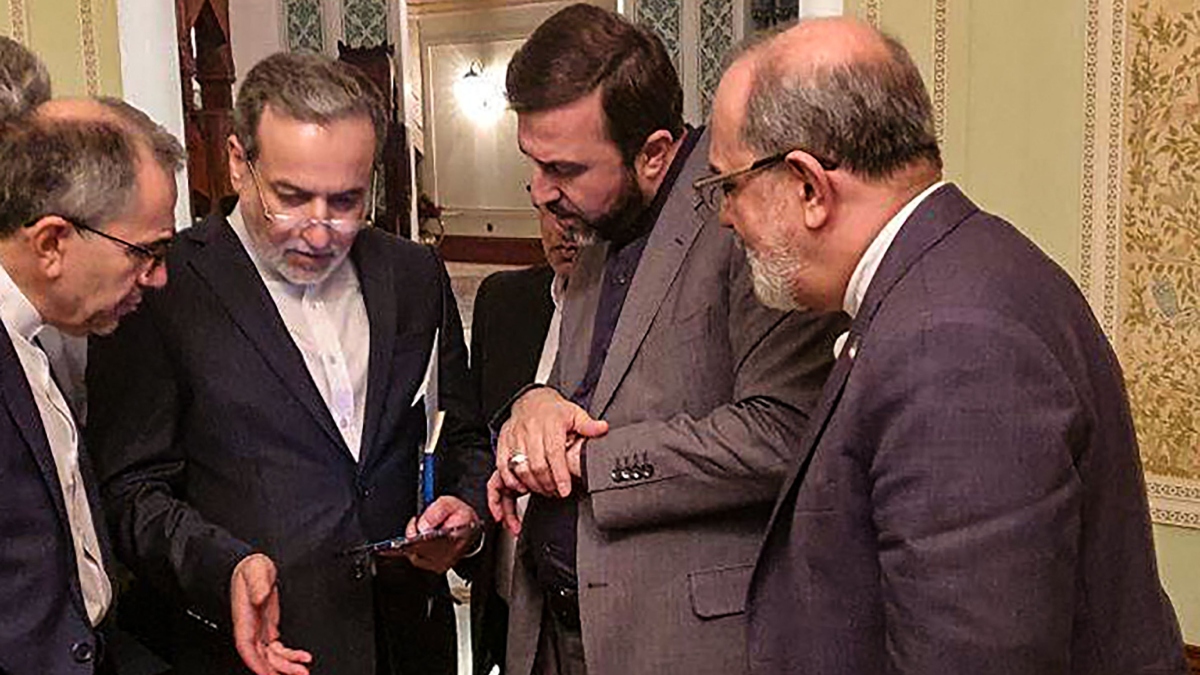This is why Iran snubbed Rome as the venue for the second round of talks with US
 This handout picture provided by Khabar Online on April 12, 2025, shows Iran's Foreign Minister Abbas Araghchi (2nd-L) speaking with members of the Iranian delegation after a meeting in Muscat. | AFP
This handout picture provided by Khabar Online on April 12, 2025, shows Iran's Foreign Minister Abbas Araghchi (2nd-L) speaking with members of the Iranian delegation after a meeting in Muscat. | AFP
Amid reports that the second round of 'indirect' talks between the US and Iran would be held in Rome, Tehran has reportedly chosen to continue with the negotiations in the Omani capital of Muscat itself. Iran's decision comes as Axios reported on Monday that the Trump administration is insistent on picking the venue for the second round and has opted for Rome.
The change of plans came after Italy rejected Tehran’s request to hold the talks at the Omani embassy in Rome, Iran International quoted unnamed sources. Though Italy was willing to hold the talks, the government wanted it under the auspices of the Italian government in Rome and not at the Omani Embassy, which Iran disagreed to.
Soon after that, Tehran confirmed that the second round of its negotiations with the US would be held in Muscat and not Rome. "It has been agreed that Muscat will continue to host the second round of negotiations, which will be held on Saturday, April 19," Foreign Minister spokesperson Esmaeil Baghaei said.
Ebrahim Rezaei, spokesperson for Parliament’s National Security and Foreign Policy Committee, said Takht-e-Ravanchi had earlier told Iranian Parliament that Oman would continue to mediate the talks.
The US is yet to confirm the venue of the talks, but President Donald Trump later told reporters that he felt Iran was "tapping us along."
Both sides had hailed the first round of talks as constructive. Though the US would prefer the talks to be more direct, Iran insists on it being "indirect". For Iran, the goal of the talks is the removal of sanctions, while the US now wants to see Iran take steps to move its nuclear programme further from weaponisation. Speculations are that in the second round, the negotiations could take place with Iranian and U.S. officials sitting in the same room.
Meanwhile, Araghchi has reportedly briefed his Saudi, Turkish, Bahraini and Iraqi counterparts about the negotiations with the United States. He held phone calls with the Kuwaiti, Emirati, Qatari and Egyptian foreign ministers.
Middle East